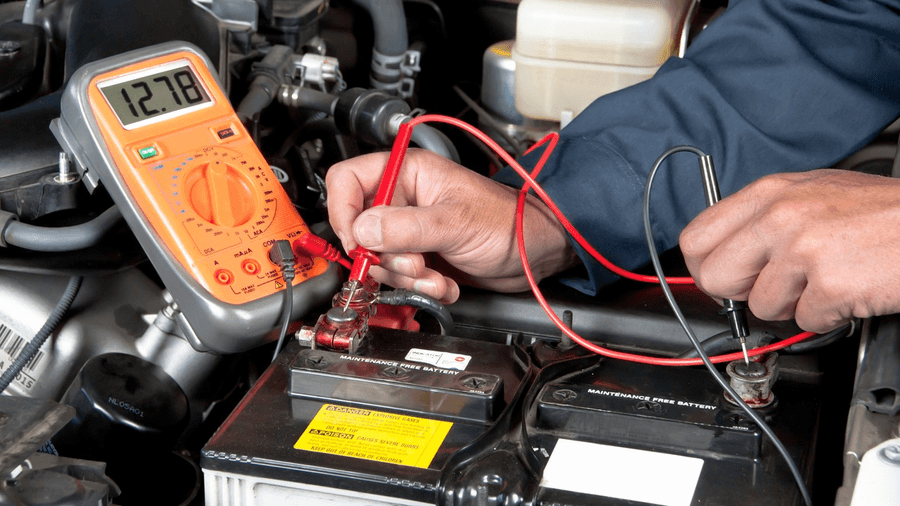When it comes to auto repair and service, many people are skeptical about pricing and afraid that they will, for lack of a better term, get ripped off. At Roda, we think the best customer is an informed customer. To that end, we’re sharing a few of our best tips on how to make sure you are getting the best value for your dollar at the service center.
Know Your Vehicle
It would be impractical to suggest that every car owner read their manual cover to cover. That being said, it’s important to understand the basics about your vehicle. For starters, what is your car’s make, model, and year of manufacture? This may seem simple, but many people mistake their exact model or year of their car. Because parts and accessories are made custom depending on the make and model, every car owner should know these basics:
- Have a basic understanding of the maintenance schedule suggested for your car by the manufacturer; how often you need an oil change, when your fluids should be checked and when your tires need to be rotated can all be varied depending on your car. Being familiar with your car’s maintenance schedule will make it easier for you to identify which recommendations are required by the manufacturer.
- That sticker on your windshield may say you need an oil change every 3,000 miles, but modern vehicles rarely need oil changes that often. For example, Jaguars have extremely long oil change intervals at 15,000 miles, while some Hyundais and Kias with turbo engines (engines that need non synthetic oil) need an oil change closer to every 5,000 miles.
Arming yourself with this basic knowledge will go a long way not only for your wallet, but will also ensure your car is well taken care of based on its unique needs.
Warranty vs Non-Warranty vs Service Contracts
If your car is newer, there is a chance that some service items are covered under your car’s warranty. This means when choosing a service provider, you should ensure that they are certified and able to honor that warranty – otherwise you might be paying for service that should be no cost to you!
- Warranties are often a black box for vehicle owners. Make sure you gain a basic understanding of your warranty, and get it in writing. Your warranty will tell you what limitations it has including “time, mileage, deductibles, businesses authorized to perform warranty work or special procedures required to obtain reimbursement.”
- Another thing you might have gotten with your recent car purchase is a service contract. A service contract is “a paid plan that helps cover costly car repairs and takes effect once the manufacturer’s warranty has expired. Often called an extended car warranty, a vehicle service contracts can cover both new or used cars, but as the car ages, the likelihood of it needing repairs rises.”
- While service contracts/extended warranties can in some cases offer you peace of mind when it comes to servicing and repairing your car, it is extremely important to know (in writing) what is and isn’t covered – you don’t want to be surprised the next time you need a big repair and find out there’s a loophole in your contract and you’re on the hook for the full amount.
Preventative Maintenance: Pay Now, Save Later
It seems counterintuitive to suggest you spend more on car maintenance in order to save, but ask the person who is stuck with a bill to replace a gasket or even their entire engineafter their engine seizes up because of forgone oil changes, and they will surely convince you of the power of preventative maintenance.
When evaluating what preventative maintenance to get, refer back to that trusty owner’s manual to make sure your oil, fluids, and tires are taken care of at regular intervals to prevent sky high repair bills later on.
And finally…
Get It In Writing
One of the most important things to ask the service advisor for when getting your vehicle serviced is a written estimate. This estimate should break down the different costs between diagnostics, parts, and labor, and it should ideally reflect the recommended service in a way that lets you make decisions on what’s needed today, versus what can be done at a later date.
Your service advisor should contact you after their inspection and before any work is done with a written estimate and their clear recommendations on what you need and why. This will help you make informed decisions and ensure there aren’t any surprise or hidden fees that will cause a headache (or an achy wallet!) down the road.
Even if you only remember a few of these tips, arming yourself with more knowledge will make taking car of your car a less stressful experience. As always, we’re here to demystify car ownership and eliminate the hassle of car service altogether. Book today to see what the hype is all about – we’d love the chance to earn your business.
Get Started with
Monday to Friday - 7:30 AM to 6 PM | Saturday - 8 AM to 4 PM
This site is protected by reCAPTCHA and the Google Privacy Policy and Terms of Service apply.


